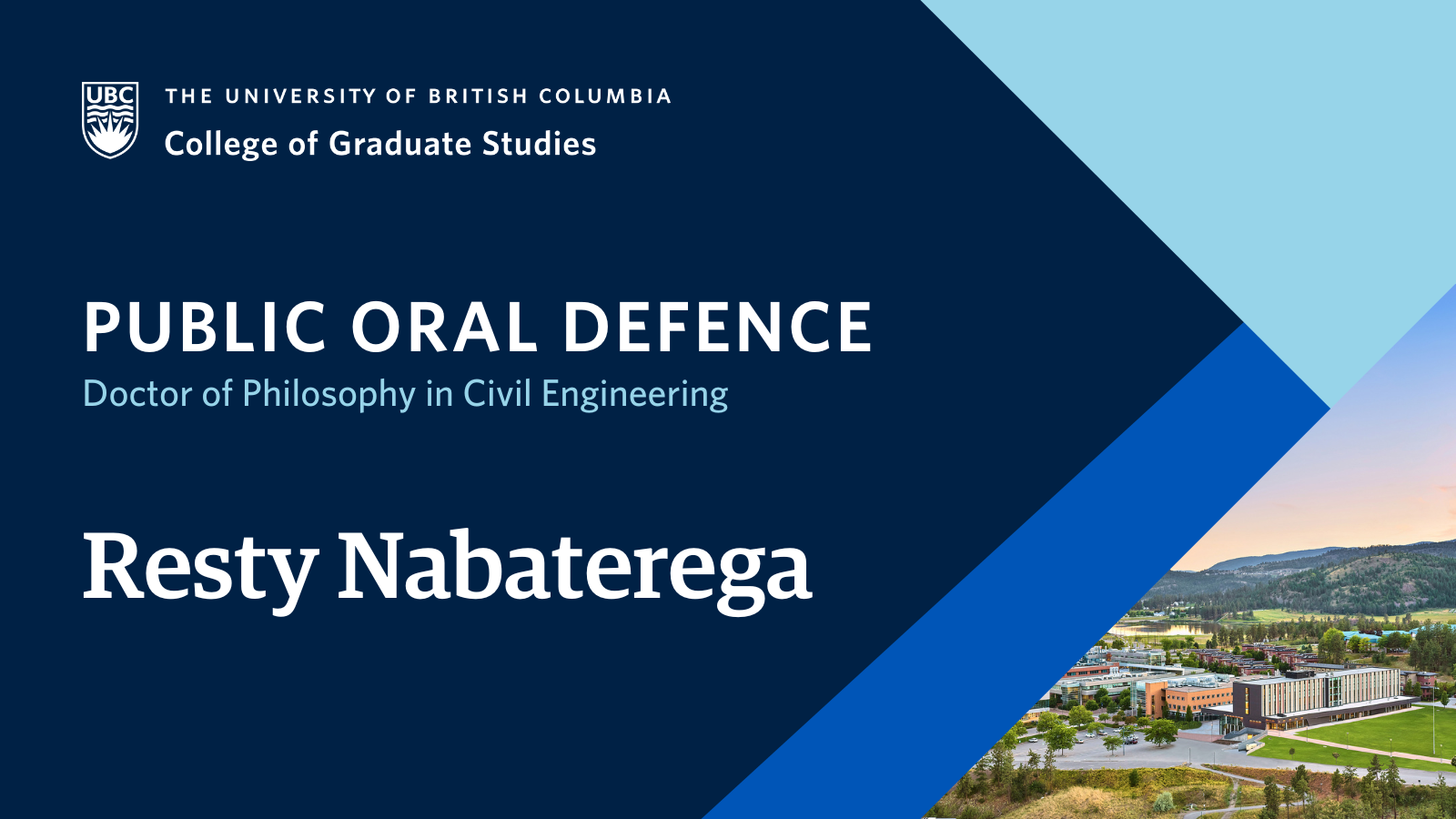
- This event has passed.
Doctoral Examination: Lab-scale optimization and process modeling of anaerobic fermentation for maximizing volatile fatty acids production from municipal sludge
December 15, 2022 at 8:30 am - 11:30 am

Resty Nabaterega, supervised by Dr. Cigdem Eskicioglu, will defend their dissertation titled “Lab-scale optimization and process modelling of anaerobic fermentation for maximizing volatile fatty acids production from municipal sludge” in partial fulfillment of the requirements for the degree of Doctor of Philosophy in Civil Engineering.
An abstract for Resty’s dissertation is included below.
Examinations are open to all members of the campus community as well as the general public.
If you would like to attend this virtual examination please contact the supervisor at cigdem.eskicioglu@ubc.ca to receive a zoom link.
ABSTRACT
Volatile fatty acids production from municipal sludge via anaerobic digestion is a promising venture to reuse the sludge for resource recovery while ensuring economic and ecological sustainability of wastewater treatment plants. However, information on optimum digester operating conditions to maximize volatile fatty acids, especially acetic acid, remains unclear and contradictory. Therefore, the current study investigated the impact of digester sludge retention time, temperature, pH, sludge composition, and their combinations on optimizing volatile fatty acids production via anaerobic digestion of municipal sludge in semi-continuous flow acid fermenters. A fractional factorial experimental design and response surface methodology were used to optimize volatile fatty acids production from municipal sludge in the acid fermenters based on the four critical parameters individually and interactively. To explain the mechanisms of volatile fatty acids production dynamics, this study also explored batch non-methanogenic microbial activity assays (i.e., specific acidogenesis, acetogenesis, and hydrolysis) and linked them to volatile fatty acids yields. The present study also modified the International Water Association Anaerobic digestion model No.1 to simulate the experimental volatile fatty acids production. The fractional factorial experimental design and response surface methodology successfully optimized volatile fatty acids production in the acid fermenters, and a second-order polynomial model with an R-squared of 0.83 and an adjusted R-squared value of 0.84 was derived. The optimal model conditions for volatile fatty acids production were 3-days sludge retention time, 45°C, pH of 8.1, and sludge composition (volatile solids/total solids ratio) of 0.92. Under these conditions, the model predicted a 3.47-fold increase in volatile fatty acids production, nearly identical to the experimental value of 3.48-fold. Furthermore, the acid fermenter had maximum activities in the non-methanogenic assays. These results suggested that batch non-methanogenic activity assays could provide quantitative information regarding the presence and activity of cultures in continuously-fed anaerobic digestion utilizing more complex substrates, such as municipal sludge. Additionally, the modified anaerobic digestion model implemented in the AQUASIM 2.0 modelling platform successfully predicted the experimental volatile fatty acids production.